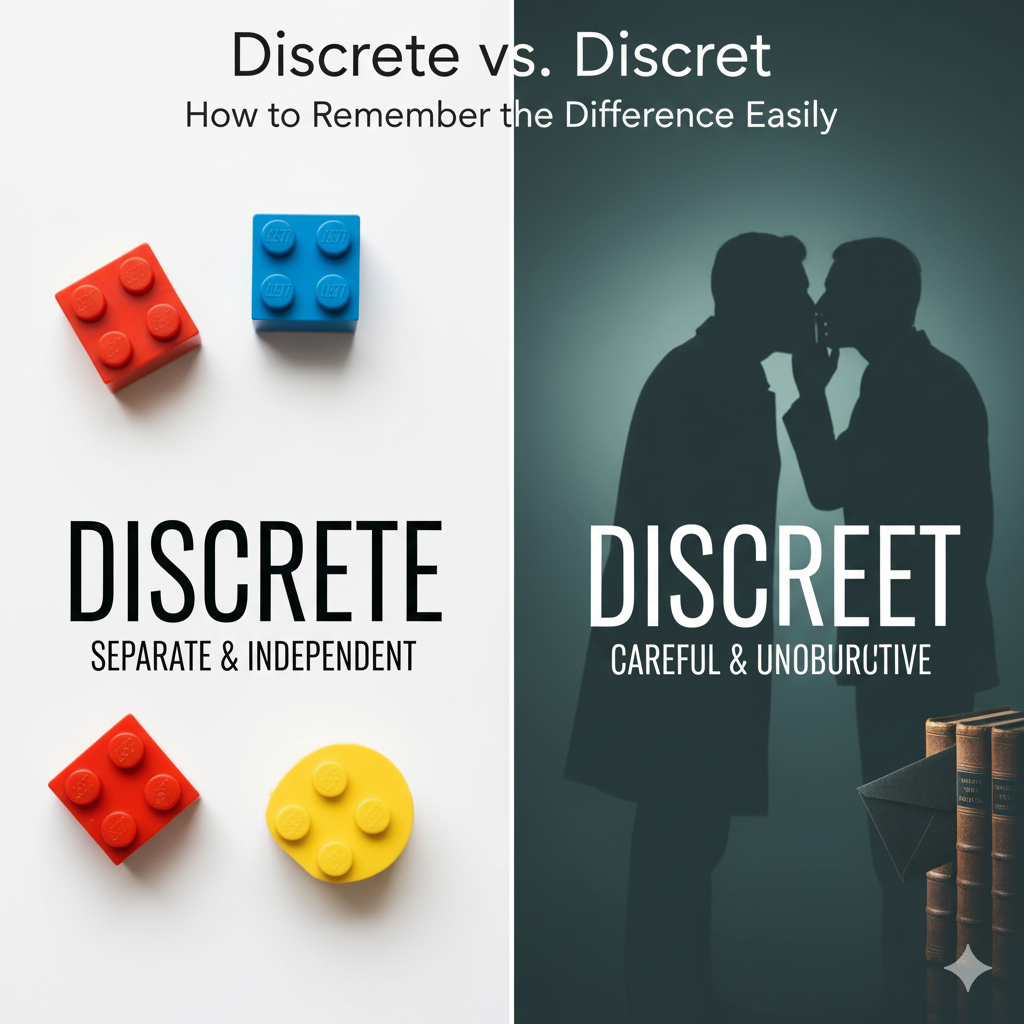Discrete vs. Discreet: How to Remember the Difference Easily

Have you ever been writing and suddenly stopped to ask yourself: “Is it discrete or discreet?”
They sound exactly the same, but their meanings are very different — and using the wrong one can totally change your sentence.
Today, Midoo AI will walk you through what each word means, when to use it, and how to easily remember the difference. Once you know the trick, you’ll never mix them up again.
What “Discrete” Means
“Discrete” means separate, distinct, or individual.
Use this word when talking about things that are clearly different or independent from each other. It’s common in science, math, and technical writing.
Examples:
- The system is made up of several discrete parts.
- These are two discrete issues that should be handled separately.
- The artist used discrete colors in each section of the painting.
- The school has discrete classes for beginners and advanced learners.
- We measured discrete data points over time.
💡 Tip: If you can replace it with “separate” or “individual,” it should be discrete.
What “Discreet” Means
“Discreet” means careful, private, or tactful.
It describes someone who avoids drawing attention or keeps things confidential. You’ll often see it in everyday writing about behavior and communication.
Examples:
- Please be discreet when sharing this information.
- He made a discreet exit from the meeting.
- She gave him a discreet smile from across the room.
- We had a discreet conversation about the problem.
- The doctor was discreet when discussing the results.
💡 Tip: If you can replace it with “careful,” “private,” or “secret,” use discreet.
How to Remember the Difference
Here’s a quick trick from Midoo AI:
- discrete → has a “t” like “separate”
→ think “separate or distinct” - discreet → has “ee” like “seecret”
→ think “careful or private”
This tiny spelling difference can save you from big mistakes!
When Writers Confuse Them
Because they sound the same, people often type discreet when they mean discrete — especially in technical contexts.
For example, writing “discreet math” is incorrect; it should be discrete math (which deals with separate, countable things).
Likewise, calling someone a “discrete person” would be wrong. It should be discreet person, meaning they are private and tactful.
FAQS:
Q: Are “discrete” and “discreet” pronounced the same?
A: Yes, they sound exactly the same (they are homophones), which is why they’re easy to mix up.
Q: Can I use them interchangeably?
A: No. They have completely different meanings.
Q: Which one is used in math or science?
A: Use discrete for math, data, or anything involving separate parts.
Q: Which one means careful or secretive?
A: That’s discreet—someone who doesn’t draw attention or keeps things private.
Q: Will grammar checkers catch this mistake?
A: Sometimes yes, sometimes no—so it’s better to learn the rule yourself.
Final Tip from Midoo AI
Here’s the shortcut to remember:
- discrete = separate or distinct
- discreet = careful or private
If you keep this tiny difference in mind, you’ll never confuse them again — and your writing will look clear and polished every time.